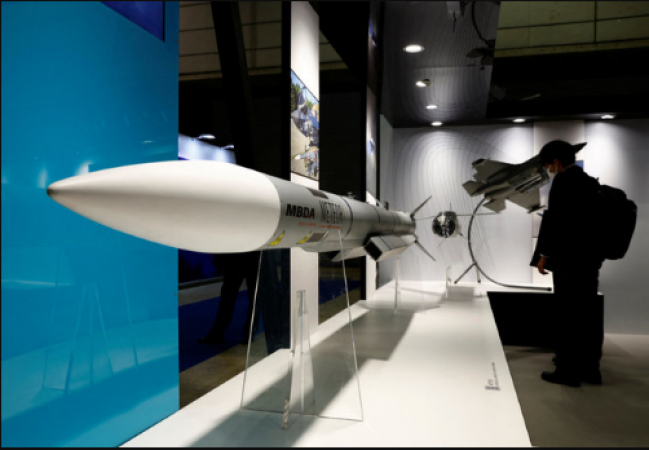
Tokyo: Tokyo is facing a challenge as it builds up its defence sector in preparation for the country's largest military buildup since World War II: some of Japan's most recognisable brands are hesitant to invest in the military sector of their companies.
Despite growing worries that Russia's so-called "special operation" attack on Ukraine might give China the confidence to invade Taiwan, Japan, which renounced war in 1947, last year unveiled a five-year, $315 billion military expansion to fend off Beijing from using force in the East China Sea.
However, a crucial component of Tokyo's strategy depends on persuading commercial companies like Toshiba Corp, Mitsubishi Electric Corp., and Daikin Industries Ltd., which have been covertly arming its Self Defense Forces (SDF) for decades, to increase production.
Also Read: Nowadays WhatsApp's New update can displays user profiles in group chats
According to Reuters interviews with six government and business officials, some of its suppliers are finding it difficult to sell that in a nation where there is a strong public sentiment against militarism.
Some businesses have voiced concerns about low profit margins, the financial risk of building manufacturing facilities that might be left idle after Japan completes its military expansion, and potential harm to their public image from arms sales in private meetings with the defence ministry over the past year.
Due to the private nature of the discussions, the official opted not to be named or link the complaints to particular businesses.
The government is drafting legislation that would increase military equipment profit margins from a few percent to as much as 15% and provide companies with state-owned factories they could use to expand production without taking any financial risks. Some people worry that might not be sufficient.
Masahisa Sato, a prominent member of the ruling party and a former deputy defence minister, claimed that the ministry had previously taken the defence companies for granted.
Also Read: Prior to securing funding First Republic spoke with private equity
According to Sato, it was getting harder for Japanese executives to convince shareholders that defence sales were necessary out of a sense of "patriotic duty" for more lucrative civilian endeavours. Defense manufacturing is a crucial pillar of national security, according to Prime Minister Fumio Kishida's military buildup plan.
However, unlike the United States' Lockheed Martin Corp. or the United Kingdom's BAE Systems PLC, Japan does not have a national defence champion, and many of the companies that supply the SDF are known for producing more banal goods.
Mitsubishi Heavy Industries, the largest defence company in Japan, generates only a tenth of its $29 billion in annual revenue from military contracts. Mitsubishi Heavy Industries is developing Japan's next jet fighter and new longer-range missiles to help deter China. Its primary products are factory machinery, power plant equipment, and components for civil aircraft.
Daikin, which manufactures air conditioners, also produces munitions; Toshiba, which manufactures electronic products like printers; Mitsubishi Electric, which produces radars and missiles alongside refrigerators and vacuum cleaners; and Toshiba, which also manufactures military-grade batteries.
Defense officials have been meeting with these companies and other top suppliers, such as the manufacturer of cars and helicopters Subaru Corp., since early last year to persuade them to increase the size of their less visible military units.
Reuters made contact with the CEOs of 15 top Japanese defence companies, whose representatives the defence ministry had invited to meetings with Nobuo Kishi, the former defence minister, in April and Yasukazu Hamada, the latter's successor, in January.
The manufacturers of jet engines, bridges, and heavy machinery, Mitsubishi Heavy, Mitsubishi Electric, and IHI Corp., three of them, confirmed they had also participated in other lower-level discussions.
The remaining firms declined to say whether they had participated in other discussions, and five companies did not respond. The companies that responded declined to disclose any information about the meetings or any issues they brought up during the discussions.
Many businesses are hesitant to discuss their defence units for fear of alienating clients domestically, where anti-military sentiment still exists, or internationally, particularly in China, where resentment over Japan's past wartime experiences could become politicised.
Also Read: US ambassador says there is no place for US drones near Russia
Reuters requested interviews with the defence unit managers of 10 Japanese military suppliers, including Toshiba, Mitsubishi Electric, Daikin, and Subaru. One and only Mitsubishi Electric concurred.
Head of Mitsubishi Electric's defence systems division Masahiko Arai said the company would benefit from helping to ensure Japan's "safety and security" and that he welcomed government proposals.